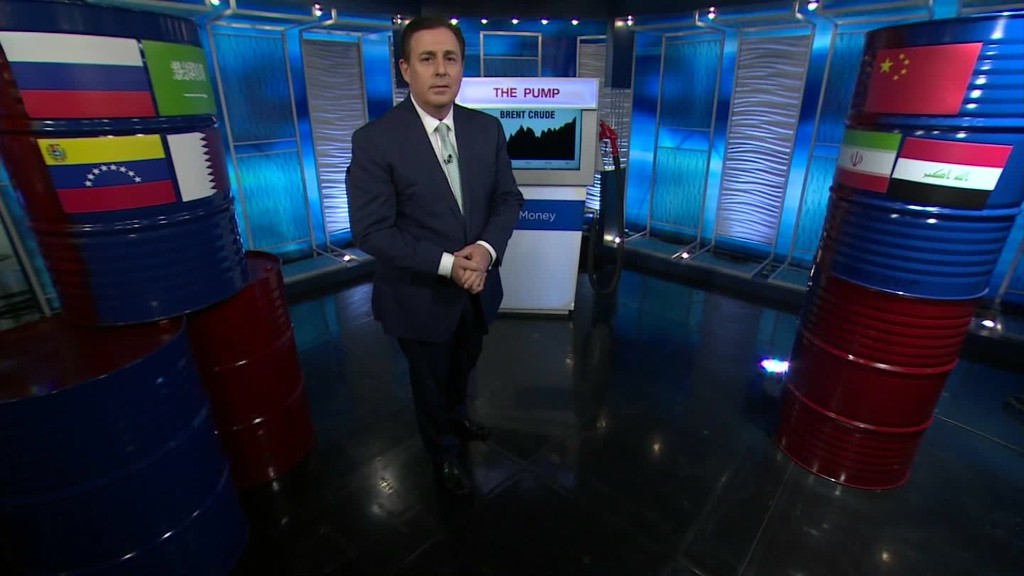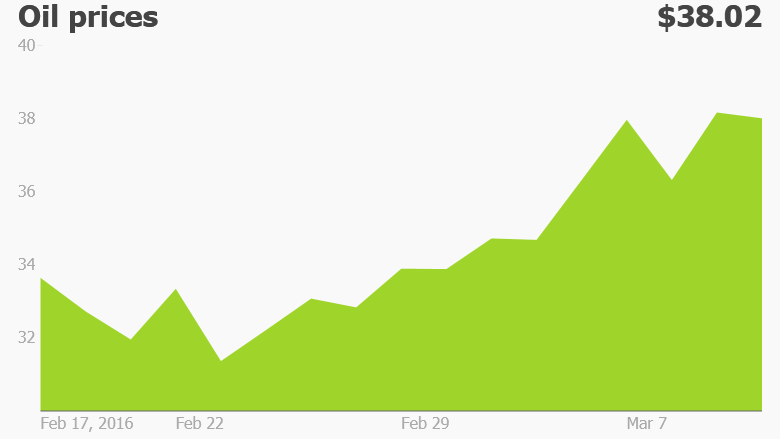
Oil prices might have hit their lowest point as output begins to fall and Iran's return to world markets fails to live up to expectations.
The International Energy Agency said Friday prices have "recovered remarkably" in recent weeks, because of supply outages in Iraq, Nigeria and the United Arab Emirates, and signs that non-OPEC supply is falling faster than expected.
"There are signs that prices might have bottomed out," the agency said in its monthly oil market report.
U.S. crude oil futures are trading just below $39 per barrel, up 50% from the February low of $26 per barrel.
The Paris-based IEA said there are clear signs that market forces are "working their magic" and higher cost producers are cutting output.
Related: Desperate oil companies sell stock to raise cash
That is good news for OPEC countries led by Saudi Arabia. It means that their strategy to squeeze rival producers by pumping near-record amounts of crude despite the low prices may finally be working.
The agency now expects non-OPEC production to fall by 750,000 barrels a day in 2016, 25% more than its previous forecast.

U.S. producers removed another 106 rigs from service in February, bringing the total rig count to 76% below the peak in October 2014.
Brazil, Colombia, China and Kazakhstan also slashed their production plans in February, the IEA said.
There are also signs that Iran's return to the oil market may be less dramatic than originally anticipated. The country was hoping to ramp up production by 500,000 barrels a day immediately after nuclear sanctions were lifted earlier this year. But IEA data show Iran's production increased by just 220,000 barrels a day in February.
Prices got additional boost in February on signs that some big oil producers might cut production. Saudi Arabia and Russia agreed to freeze production at January levels, provided other countries sign up too.
Rumors about a wider agreement keep appearing, but the IEA said it "is rather unlikely that an agreement will affect the supply/demand balance substantially."
Related: Five big oil producing countries hit with downgrades
The IEA, which monitors energy market trends for the world's richest nations, is warning that the recent jump in prices should not be taken as a "definitive sign that the worst is necessarily over."
That's because global oil demand growth is still expected to slow this year, to 1.2 million barrels a day from 1.8 million barrels a day in 2015. Demand is under pressure because of the uncertainty in global economy, China's slowdown, and the stronger dollar.
The IEA has also warned that a sudden increase in oil prices could hurt demand further.


